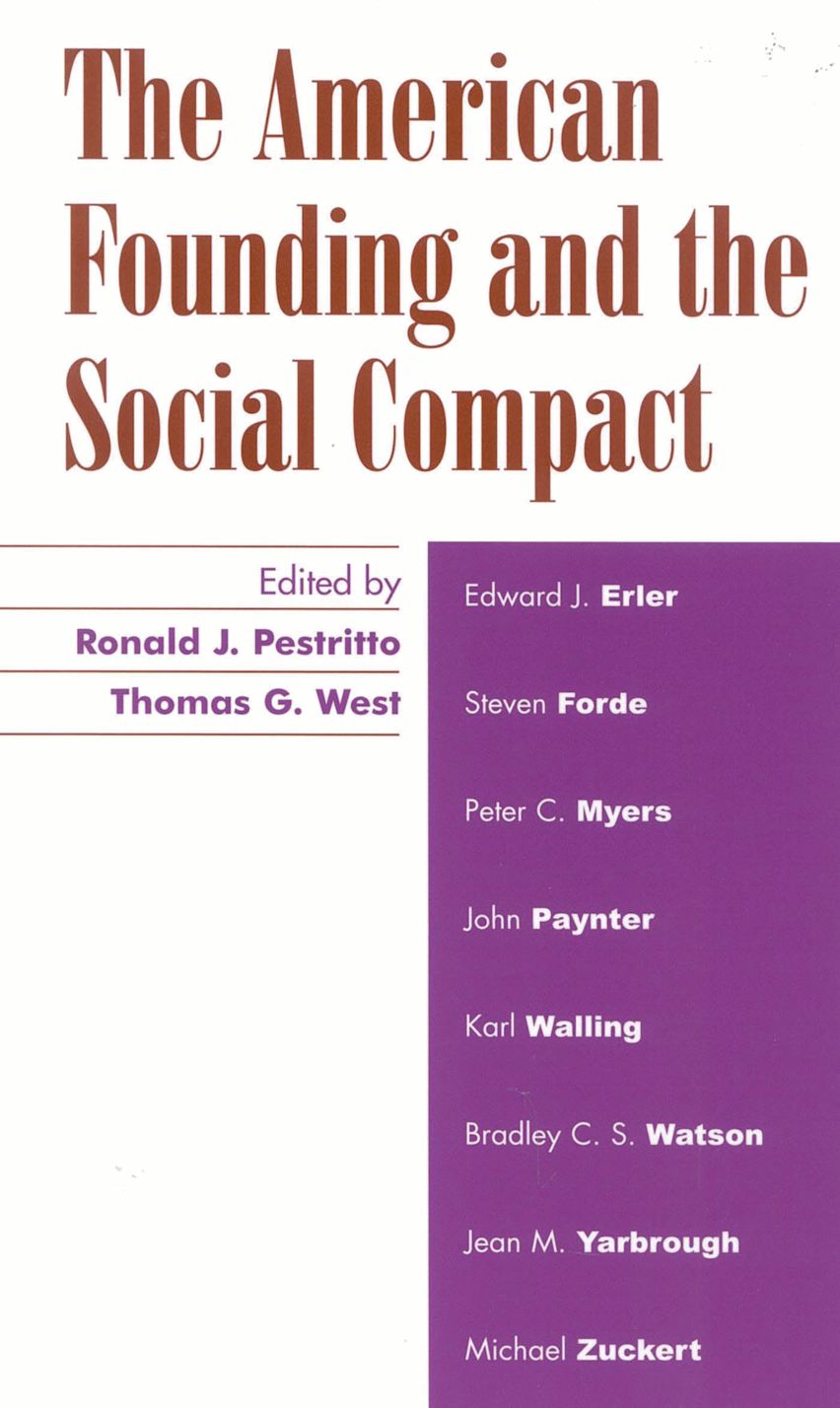- Home
- ACADEMIC
- International Development
- Society, Culture and Development
- The American Founding and the Social Compact
The American Founding and the Social Compact
Ronald J. Pestritto (Anthology Editor) , Thomas G. West (Anthology Editor) , Edward J. Erler (Contributor) , Steven Forde (Contributor) , Peter C. Myers (Contributor) , John Paynter (Contributor) , Karl Walling (Contributor) , Bradley C. S. Watson (Contributor) , Jean M. Yarbrough (Contributor) , Michael Zuckhert (Contributor)
The American Founding and the Social Compact
Ronald J. Pestritto (Anthology Editor) , Thomas G. West (Anthology Editor) , Edward J. Erler (Contributor) , Steven Forde (Contributor) , Peter C. Myers (Contributor) , John Paynter (Contributor) , Karl Walling (Contributor) , Bradley C. S. Watson (Contributor) , Jean M. Yarbrough (Contributor) , Michael Zuckhert (Contributor)
You must sign in to add this item to your wishlist. Please sign in or create an account
Description
Unlike many other books about the American founding, this new work by two of the most prominent scholars of American political history emphasizes the coherence and intelligibility of the social compact theory. Social compact theory, the idea that government must be based on an agreement between those who govern and those who consent to be governed, was one of the Founders' few unifying philosophical positions, and it transcended the partisan politics of that era. Contributors to this volume present a comprehensive overview of the social compact theory, discussing its European philosophical origins, the development of the theory into the basis of the fledgling government, and the attitudes of some of the founders toward the theory and its traditional proponents. The authors argue forcefully and convincingly that the political ideas of the American Founders cannot be properly understood without understanding social compact theory and the exalted place it held in the construction of the American system of government.
Table of Contents
Chapter 2 Locke on the Social Compact: An Overview
Chapter 3 Contribution of William Blackstone
Chapter 4 Hume, Historical Inheritance, and the Problem of Founding
Chapter 5 The Political Theory of the Declaration of Independence
Chapter 6 Thomas Jefferson and the Social Compact
Chapter 7 From Subjects to Citizens: The Social Compact Origins of American Citizenship
Chapter 8 Alexander Hamilton and the Grand Strategy of the American Social Compact
Chapter 9 John Adams's "Hobbism"
Chapter 10 Benjamin Franklin and the Theory of Social Compact
Product details
| Published | 25 Aug 2003 |
|---|---|
| Format | Ebook (Epub & Mobi) |
| Edition | 1st |
| Extent | 296 |
| ISBN | 9780585479378 |
| Imprint | Lexington Books |
| Publisher | Bloomsbury Publishing |
About the contributors
Reviews
-
This study is thoroughly reseached, it engages critically with the existing literature, and it is convincingly argued.
Political Studies Review
-
This book magnificently succeeds in restoring the politics of natural right as an intelligible and persuasive alternative to the politics of historicism.
Claremont Review of Books
-
Recommended.
Choice Reviews
-
This volume makes a massive contribution to our understanding of the founding by emphasizing the social compact political theory behind the founding. This allows the various and thoughtful authors to be guided by those special qualities that inhere in the social compact theory-the ideas of nature, equality, liberty, and consent-and to interpret its meaning; this is the often forgotten, yet necessary, condition that helps explain how our constitutional democracy can work so well. I heartily recommend this volume to all students of the founding.
Peter W. Schramm, Executive Director of the John M. Ashbrook Center for Public Affairs and a Professor of Political Science at Ashland University



































